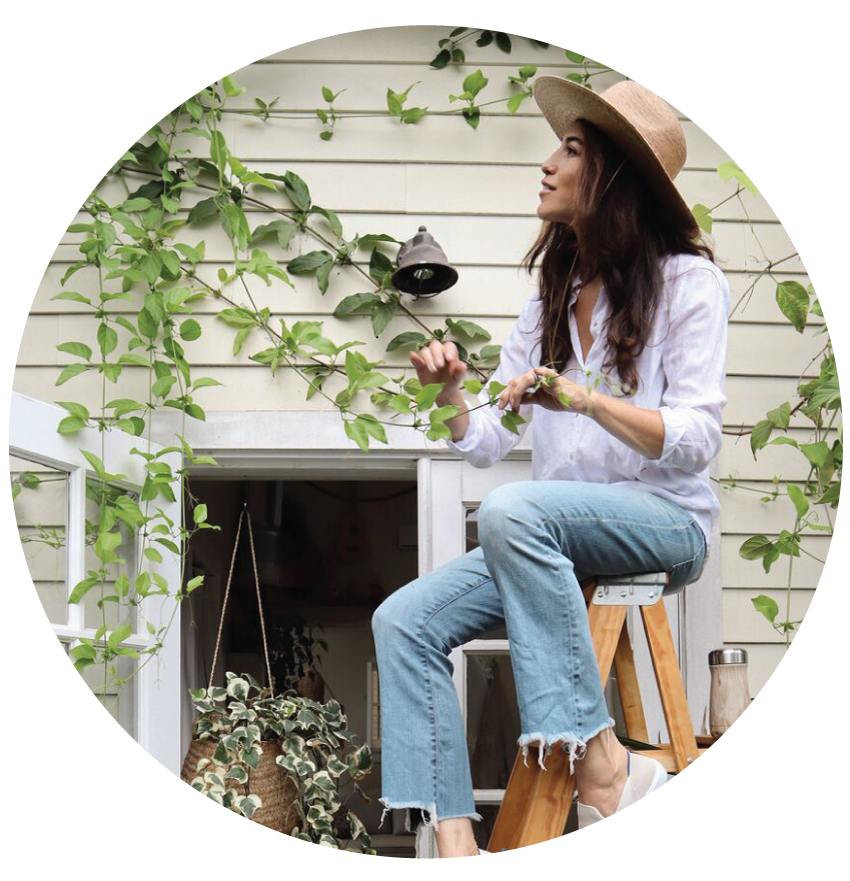Library Book Roundup (2.16.20)
“One of the greatest lessons I have learned is that all people — young or old, big or small, girl or boy — have power. We can achieve the life we want for ourselves and our families when we pay attention to protecting our environment. We must not wait for others to do it. We can practice the Four Rs [Reduce, Reuse, Repair, and Recycle] wherever we live, whether we are rich or poor, or live in the country or the city.” - Wangari Maathai via “The Little Hummingbird” by Michael Nicole Yahgulanaas.
I’ve written repeatedly about our profound appreciation for our local library— the ultimate accessible zero waste learning center.
Beyond being the place where we can checkout 29 books per person per visit, it’s also where we go to sit in quiet and read the newspaper, keep informed about local elections and refresh our knowledge of our local voting systems, attend workshops/classes with our 3 year old, and donate our used books (since we don’t have much room to hold on to them here in our tiny house).
We pop into our city and county branches about 3-4 times per month. West usually gets about 15 titles every time we go, and Adam and I usually grab a small stack for ourselves as well.
I’d estimate that our library has saved us anywhere between $10,000 - $15,000 annually. I should note that we couldn’t spend that sort of money on books if we had to buy them all, and we would thus scale back our reading habits accordingly.
Luckily our library makes us feel as though our access to books is virtually unlimited, so we stock up with each visit.
Not only does borrowing books save us money— it of course saves us huge amounts of space as well. Plus it avoids all the waste that comes with with packaging and shipping from online shopping.
Here are some of our favorites from this week’s haul, along with a few additional titles we purchased because they were unavailable at our nearby branches. Once we’re done with them, we’ll tote them to the library with us during our return run and leave them there for others to enjoy.
Children’s Books:
The Little Hummingbird
Author: Michael Nicole Yahgulanaas, with a message from Wangari Maathai
Why we borrowed it: This book sends the message that all of us have the power to make a difference.
Yeti and the Bird
Author: Madia Shireen
Why we borrowed it: This book sense the message that it’s never too late to become who you want to be.
Our Children Can Soar
Author: Michelle Cook
Why we borrowed it: This book progresses through the story of the US Civil Rights Movement, showing how select pioneers' achievements eventually led to the country electing its first black president.
Ball & Balloon
Author: Rob Sanders
Why we borrowed it: This book sends the message that the grass is not always greener on the other side, and that we all have setbacks and fortes, no matter what our lives might look like to those around us.
The Hueys in: The New Sweater
Author: Oliver Jeffers
Why we borrowed it: Oliver Jeffers always makes us either laugh uproariously or experience a deep and meaningful tug in our hearts. This book always gets a cackle out of our child, while sending a message about authenticity.
Nature’s Art Box
Author: Laura C. Martin
Why we bought it: Nature is full of art materials, all right here at our fingertips. This book demonstrates ways in which acorns, moss, shells, leaves and so much more can be used to create beautiful, natural works of art.
Books for Adults:
Green Dog, Good Dog
Author: Dominique De Vito
Why we borrowed it: This book was written in 2009 and contains some outdated material, but overall it’s a helpful way to step back from the booming pet industry and explore the simple ways to cut back carbon paw prints.
The New Self-Sufficient Gardener
Author: John Seymour
Why we borrowed it: We’ve yet to read this book, but we were interested to see what we could learn about training vines, harvesting and preserving homegrown food.
Me & White Supremacy
Author: Layla F. Saad
Why we bought it: “Me and White Supremacy: A 28-Day Challenge to Combat Racism, Change the World, and Become a Good Ancestor leads readers through a journey of understanding their white privilege and participation in white supremacy, so that they can stop (often unconsciously) inflicting damage on black, indigenous and people of color, and in turn, help other white people do better, too.”
Fibershed
Author: Rebecca Burgees
Why we bought it: “There is a major disconnect between what we wear and our knowledge of its impact on land, air, water, labor, and human health. Even those who value access to safe, local, nutritious food have largely overlooked the production of fiber, dyes, and the chemistry that forms the backbone of modern textile production. While humans are 100 percent reliant on their second skin, it’s common to think little about the biological and human cultural context from which our clothing derives. Fibershed is a resource for fiber farmers, ranchers, contract grazers, weavers, knitters, slow-fashion entrepreneurs, soil activists, and conscious consumers who want to join or create their own fibershed and topple outdated and toxic systems of exploitation.”
















